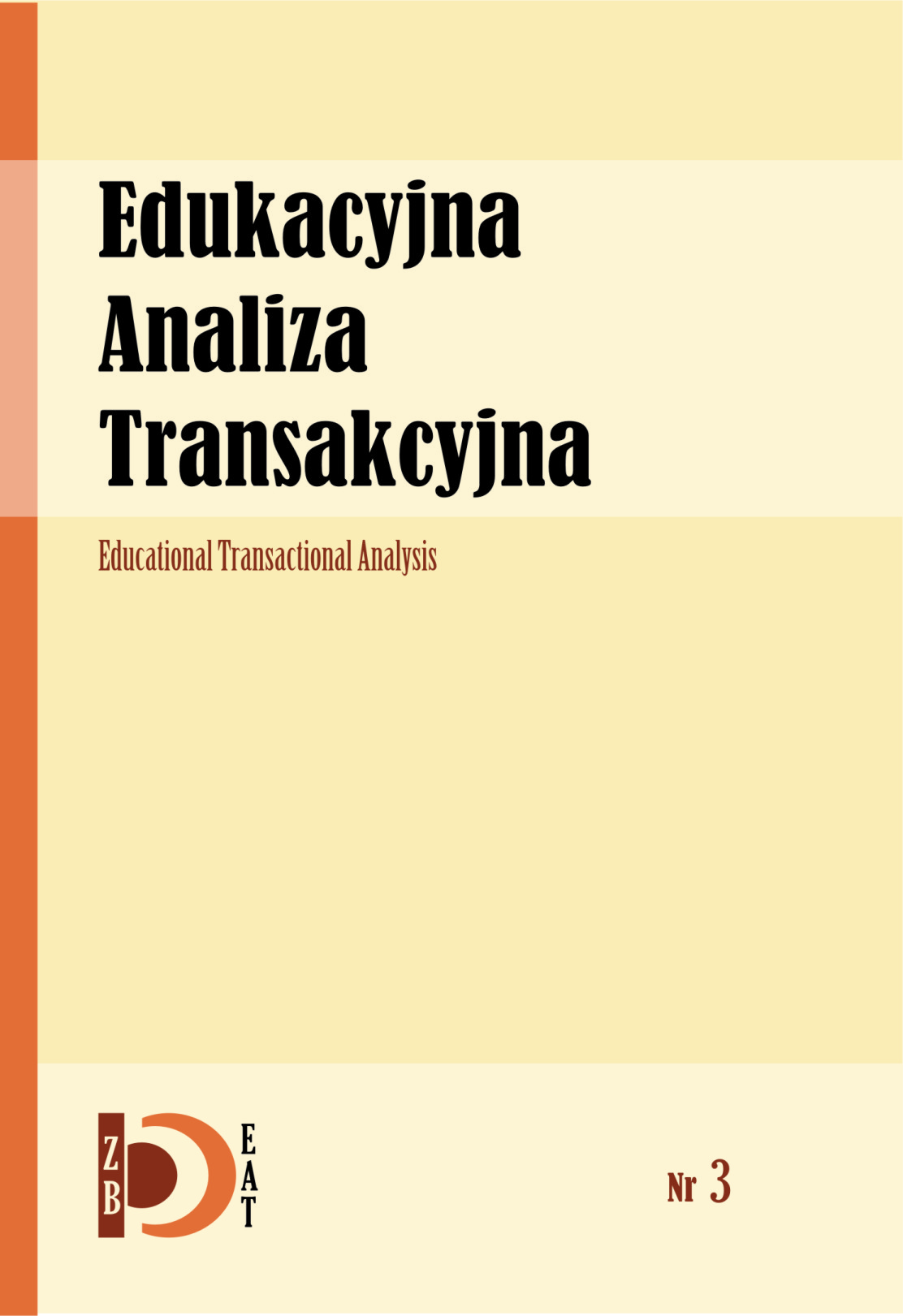Stany Ja diagnosty edukacyjnego
The Ego States of Educational Diagnosticians
Author(s): Bolesław NiemierkoSubject(s): Social Sciences, Education
Published by: Uniwersytet Jana Długosza w Częstochowie
Keywords: educational diagnostics; educational diagnostician; educational transactional analysis; ego states; egogram
Summary/Abstract: Amidst the multitude of their professional obligations, teachers also function as informal educational diagnosticians. This role requires maturity and the ability to shed uncontrolled inclinationswhich could bias diagnoses they perform. Transactional analysis may assist with such a self recognition task. A feasibility study on how transactional analysis can explain the differences in teachers’ concepts of their diagnostic duties has been carried out on a small sample of 30 post-graduate studentsof education. The students completed two inventories: (1) an original set of four ten-item scales labeled: Procedural (learned by assimilation), Taking a Risk (learned by doing), Theoretician (learned by discovery), and Intuitive (learned by experience). (2) the Egogram representing nine categories of double-level analysis, created in the Research Group for Educational Transactional Analysis in Jan Długosz University in Częstochowa. The main findings of the study include the following ones: 1. In students’ opinion, Procedural type of a diagnostician resembles mostly Adult in Adult attitude and is free of the Parent in Parent authoritarian flaw. 2. The Taking a Risk diagnostician is closest to Adult in Parent, practice-oriented educator. 3. Theoreticians are also Adult in Parent personalities supported by the Parent in Adult ethical considerations. 4. Intuitive diagnosticians are versatile, associated with all types of Parent and Adult but not withthe Childish spontaneous attitude except of certain amount of the Adult in Child’s creativity. Much more research is needed to confirm the findings and to transfer them into acting educational evaluators: homeroom and subject-matter teachers, tutors, and supervisors.
Journal: Edukacyjna Analiza Transakcyjna
- Issue Year: 2014
- Issue No: 3
- Page Range: 13-26
- Page Count: 14
- Language: Polish

